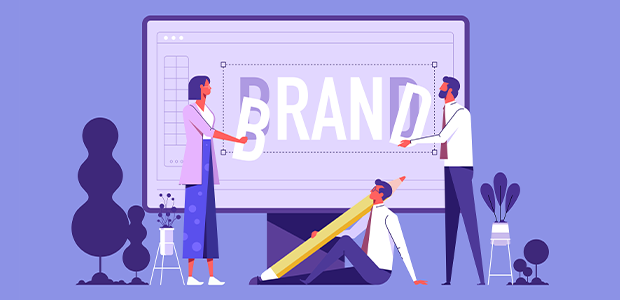
How a startup can incorporate bold branding to create real change
In 2016, I became an accidental founder. Driven by a deep frustration with how diversity was often discussed in binary terms, focusing solely on gender, I started Other Box to address the conversation in a way that was more intersectional and reflective of people like me – a South Asian woman of colour from a working-class background. I wasn't planning to build a business, but I felt compelled to create a space where the voices of marginalised communities could be heard and valued.
What began as a grassroots effort quickly gained momentum. We grew from a small community into an international, award-winning business. Through our training programmes, jobs board, community, creative work, and consulting, we challenge norms, question outdated ways of doing things, and galvanise people into taking positive action against long-standing injustice and inequity.
Throughout my eight years of entrepreneurship, I faced the challenges and rewards from the growing pains of scaling a business to often navigating spaces where people like me were underrepresented. And despite the accolades and global impact we've achieved, ongoing discussions about diversity and inclusion show that many still need help understanding its critical importance in our multicultural, hyperconnected world.
It's not enough to talk about equality; we need to focus on equity. True equity addresses the systemic barriers that prevent certain groups from even getting to a place where equality is possible. For marginalised communities, the playing field isn't level, and it never has been. This reality is something I've seen firsthand as a woman of colour in the media/education tech startup world, where I've often had to work twice as hard to be heard and recognised, and also in the hundreds of businesses I've worked with. Equity must be at the heart of everything we do, especially as business leaders. From building our teams to engaging within our communities, it's about recognising people's different starting points and ensuring everyone has what they need to succeed.
So, as I grew as a leader, as Other Box evolved, so too did our brand. Branding is more than just a logo or colour palette – it reflects who you are and what you stand for. After years of growth and transformation, I knew it was time for our brand to reflect the confidence and boldness we had developed as a company. This is where our partnership with Omse became pivotal.
Working with Omse on our rebrand was significant in our startup's evolution. They understood the essence of our journey and helped us create a striking brand that embodied our mission and values. The new brand represents our growth, resilience, and unwavering commitment to making diversity and inclusion more than just buzzwords.
This rebrand was about more than aesthetics; it was about stepping into our power as a business that champions equity and amplifies the voices of often overlooked people. It marked a new chapter in our story – one where we are unapologetically bold, confident, and ready to continue breaking down barriers.
Reflecting on the past eight years, I'm proud of what we've accomplished, but I'm also acutely aware of how much work remains. The fight for equity is ongoing, and as a South Asian female founder, I'm committed to continuing this work – not just for myself but for the countless others who deserve a seat at the table.
The journey from accidental founder to leading an award-winning business has been challenging but incredibly rewarding. As we move forward, I'm more determined than ever to ensure that our work not only sparks conversation but drives real, systemic change.

